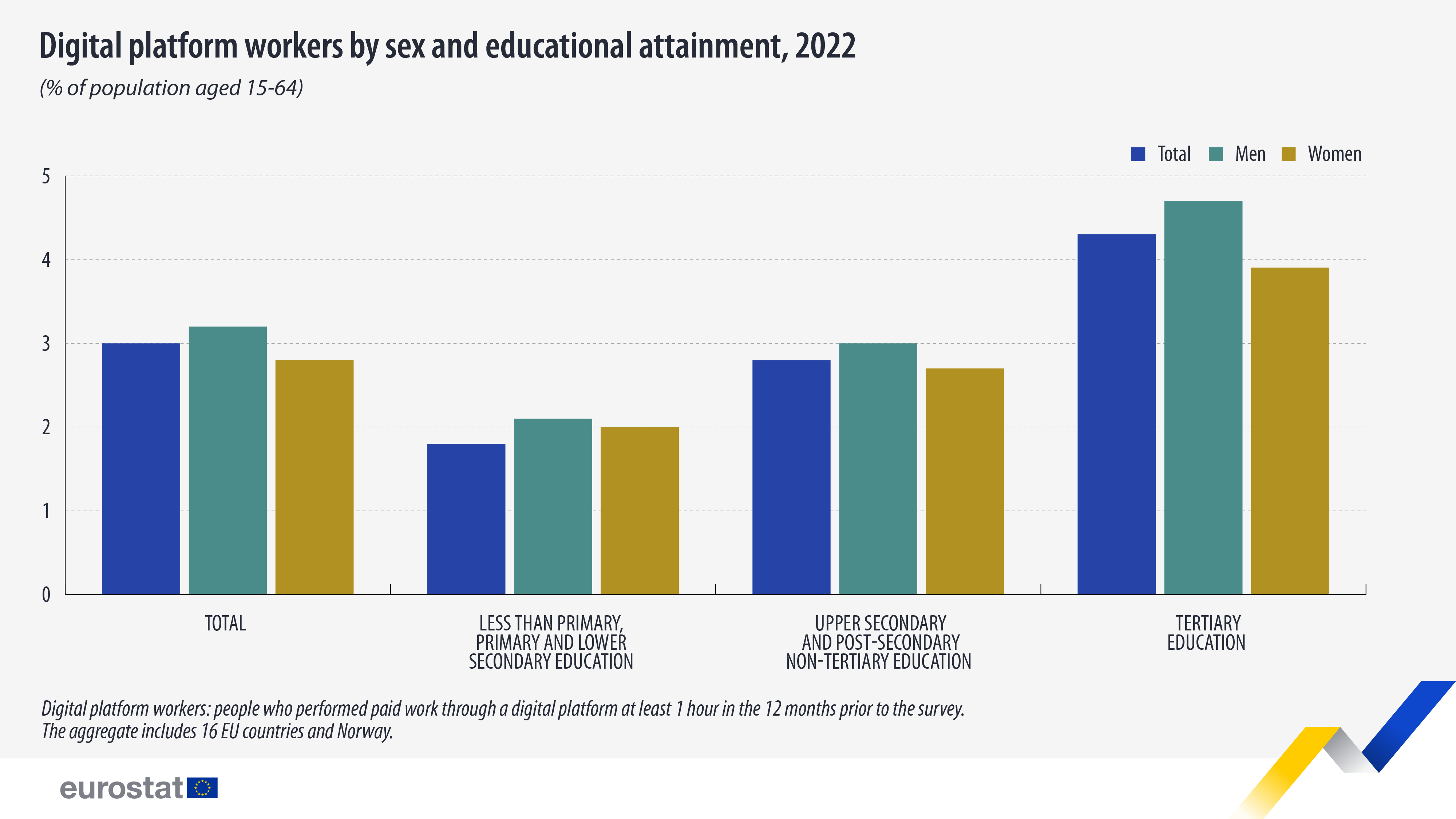Experimental statistics on digital platform employment

In 2022, 3.0% of people aged 15-64 worked through digital platforms at least 1 hour in the 12 months preceding the survey. This result comes from a pilot data collection in 16 EU countries and 1 EFTA country.
The share was highest among people with tertiary education (4.3%) and lowest among those who finished up to lower secondary education (1.8%). Men were more likely to engage in platform work than women (3.2% vs. 2.8%).
Eurostat began collecting data on the emerging phenomenon of digital platform employment in 2022 with a pilot survey within the European Union Labour Force Survey (EU-LFS).
The results, published as experimental statistics, provide information on the people who performed paid work through digital platforms with a breakdown by sex, age, education level, activity type and employment status, as well as on their work arrangements and working conditions.
Source dataset: lfst_dpw_01
In 2022, more than half of digital platform workers were not covered in case of unemployment (62.4%), sickness (56.3%) or work-related accidents (54.2%). Roughly one-quarter of the workers were covered by another job not related to platforms (25.1% for accidents, 25.0% for sickness and 23.3% for unemployment) and the remaining workers were covered by the platform or by another, not work-related, source.
For more information
- Statistics Explained article on employment statistics - digital platform workers
- Experimental statistics webpage on digital platform employment (DPE)
- Methodological note on digital platform employment
- Thematic section on labour market
Methodological notes
- The pilot survey was conducted in 2022.
- Digital platform work refers to all work conducted for pay or profit where tasks/activities were organised through an internet platform or a phone app for at least one hour in at least one week, during the reference period. It includes in particular, the following work for pay and profit: (1) taxi or transport services (driving clients, food delivery, goods delivery), (2) provision of actual services to rent out a house, a room or any other accommodation, (3) producing or buying goods with the purpose to sell them online, (4) other kinds of services or work such as cleaning, handiwork, child or elderly care, teaching, programming, online support, translation, data or text entry, web or graphic design, medical services (this includes, for example, the use of platforms matching physicians and their clients) and content creation.
- The results of the pilot survey cover 16 EU countries, namely: Belgium, Cyprus, Denmark, Finland, France, Greece, Hungary, Ireland, Italy, Latvia, Malta, the Netherlands, Poland, Portugal, Romania, Slovenia and 1 EFTA country: Norway.
If you have any queries, please visit our contact us page.

